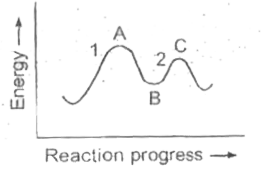For scientific progress, is only qualitative thinking enough?
Step-by-Step Solution:
1. Understanding Qualitative Thinking:
- Qualitative thinking involves understanding concepts, ideas, and phenomena based on descriptions and characteristics rather than numerical values. It helps in forming hypotheses and theories.
2. Role of Quantitative Thinking:
- Quantitative thinking, on the other hand, involves measuring and expressing phenomena in numerical terms. It allows for precise calculations, predictions, and the establishment of mathematical relationships.
3. Historical Context:
- Initially, qualitative thinking was deemed sufficient for scientific inquiry. Early scientists relied on observations and descriptions to formulate theories about natural phenomena.
4. Advancement of Science:
- As science progressed, it became clear that qualitative descriptions alone were inadequate. The development of quantitative methods allowed scientists to test hypotheses rigorously and validate theories through experiments.
5. Mathematical Expressions:
- The laws of nature are often expressed in mathematical forms (equations). These equations provide a universal language that can describe physical laws and predict outcomes under various conditions.
6. Conclusion:
- Therefore, while qualitative thinking is important for generating ideas and understanding concepts, it is not sufficient on its own for scientific progress. Quantitative measurements and mathematical formulations are essential for validating theories and advancing scientific knowledge.
Final Answer:
No, only qualitative thinking is not enough for scientific progress; quantitative measurements are also crucial.
---
- Qualitative thinking involves understanding concepts, ideas, and phenomena based on descriptions and characteristics rather than numerical values. It helps in forming hypotheses and theories.
- Quantitative thinking, on the other hand, involves measuring and expressing phenomena in numerical terms. It allows for precise calculations, predictions, and the establishment of mathematical relationships.
- Initially, qualitative thinking was deemed sufficient for scientific inquiry. Early scientists relied on observations and descriptions to formulate theories about natural phenomena.
- As science progressed, it became clear that qualitative descriptions alone were inadequate. The development of quantitative methods allowed scientists to test hypotheses rigorously and validate theories through experiments.
- The laws of nature are often expressed in mathematical forms (equations). These equations provide a universal language that can describe physical laws and predict outcomes under various conditions.
- Therefore, while qualitative thinking is important for generating ideas and understanding concepts, it is not sufficient on its own for scientific progress. Quantitative measurements and mathematical formulations are essential for validating theories and advancing scientific knowledge.
No, only qualitative thinking is not enough for scientific progress; quantitative measurements are also crucial.
Topper's Solved these Questions
- PHYSICAL WORLDBOOK - AAKASH INSTITUTE ENGLISHCHAPTER - PHYSICAL WORLDEXERCISE - ASSIGNMENT (Section-A)
40 Videos
- PHYSICAL WORLDBOOK - AAKASH INSTITUTE ENGLISHCHAPTER - PHYSICAL WORLDEXERCISE - ASSIGNMENT (Section-B)
4 Videos
- PHYSICAL WORLDBOOK - AAKASH INSTITUTE ENGLISHCHAPTER - PHYSICAL WORLDEXERCISE - ASSIGNMENT (Section-B)
4 Videos
- OSCILLATIONSBOOK - AAKASH INSTITUTE ENGLISHCHAPTER - OSCILLATIONSEXERCISE - Assignment (Section D) (ASSERTION-REASON TYPE QUESTIONS)
13 Videos
- RAY OPTICS AND OPTICAL INSTRUMENTSBOOK - AAKASH INSTITUTE ENGLISHCHAPTER - RAY OPTICS AND OPTICAL INSTRUMENTSEXERCISE - ASSIGNMENT (SECTION - D)
16 Videos
Similar Questions
arithmetic progression
View Solution
Reaction progress →
View SolutionQualitative pollutants are
View SolutionScientific name of Ragi is
View SolutionThe scientific name of zebu is
View SolutionDefine an arithmetic progression.
View SolutionScientific name of 'rohu' is
View SolutionThe scientific name of dog is correctly written as
View SolutionScientific names are generally taken from
View SolutionThe brown ring test is performed for the qualitative detection of
View Solution
